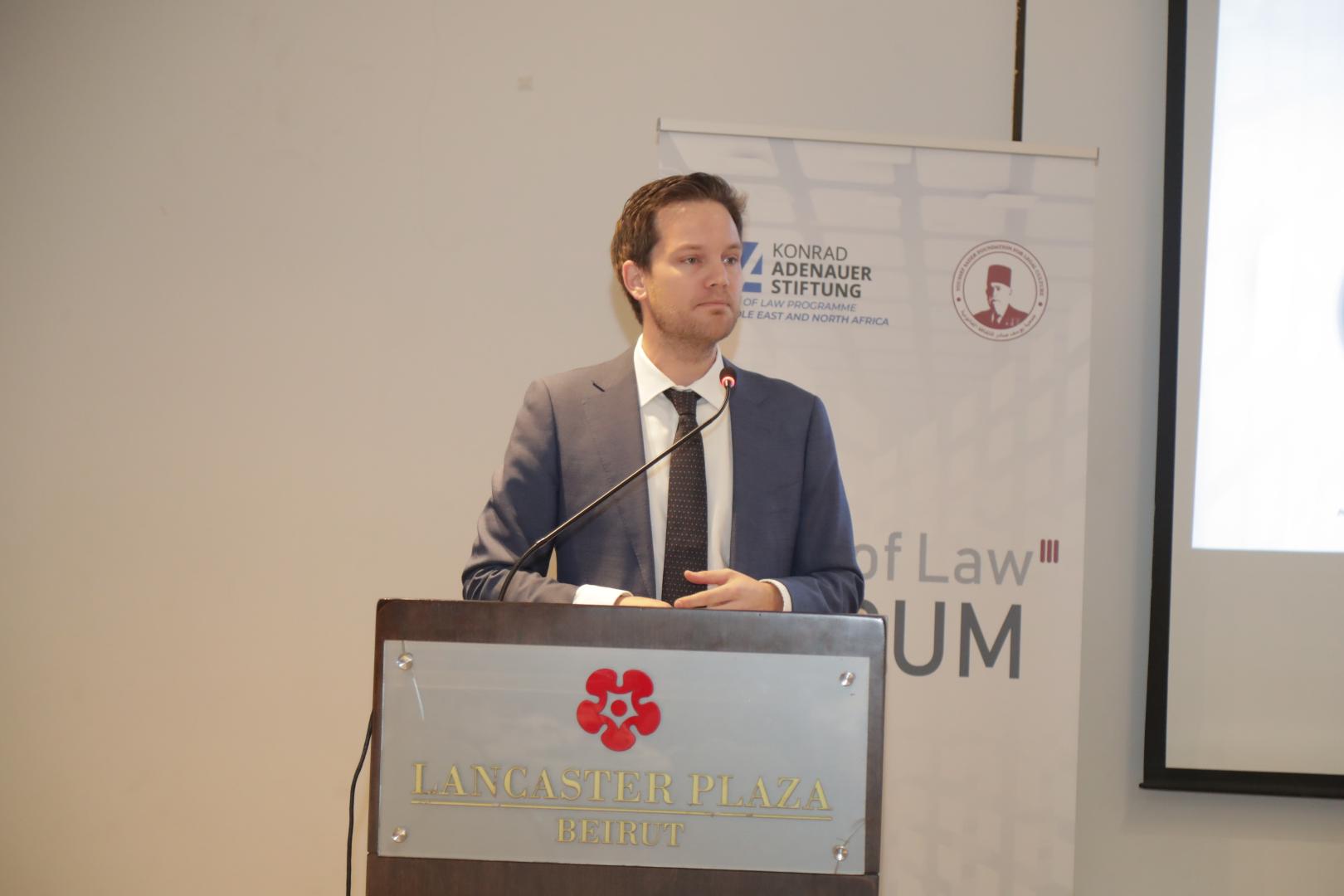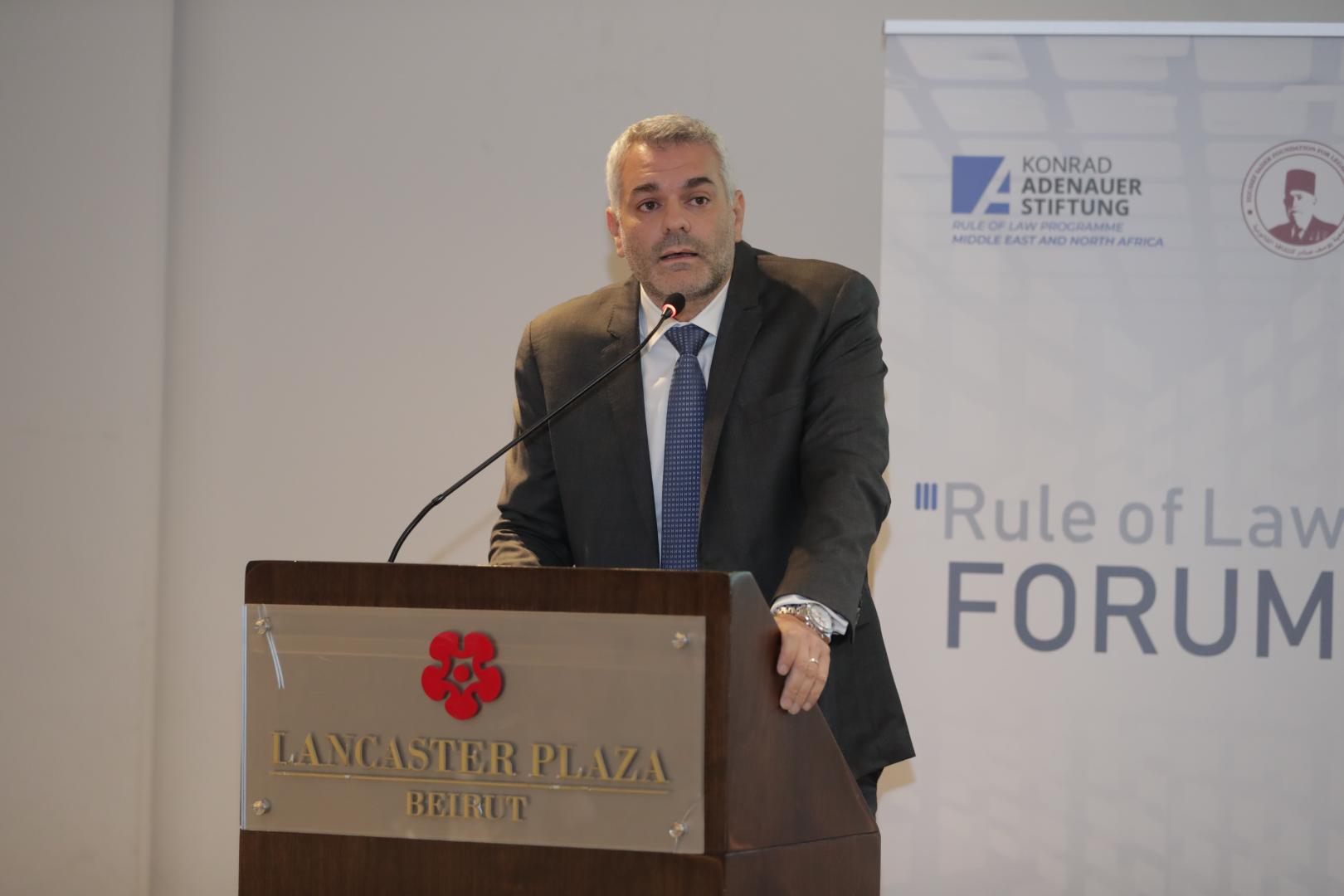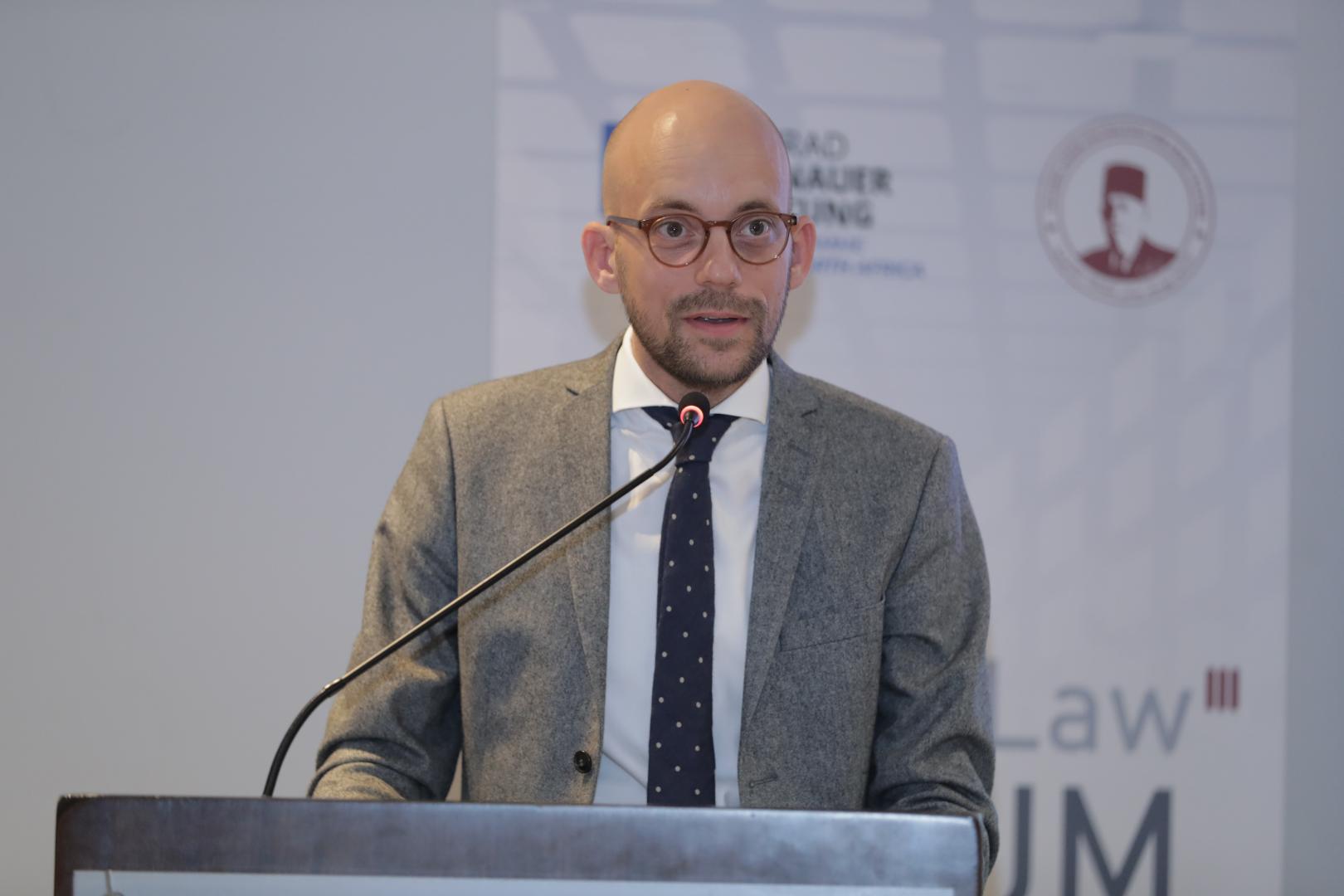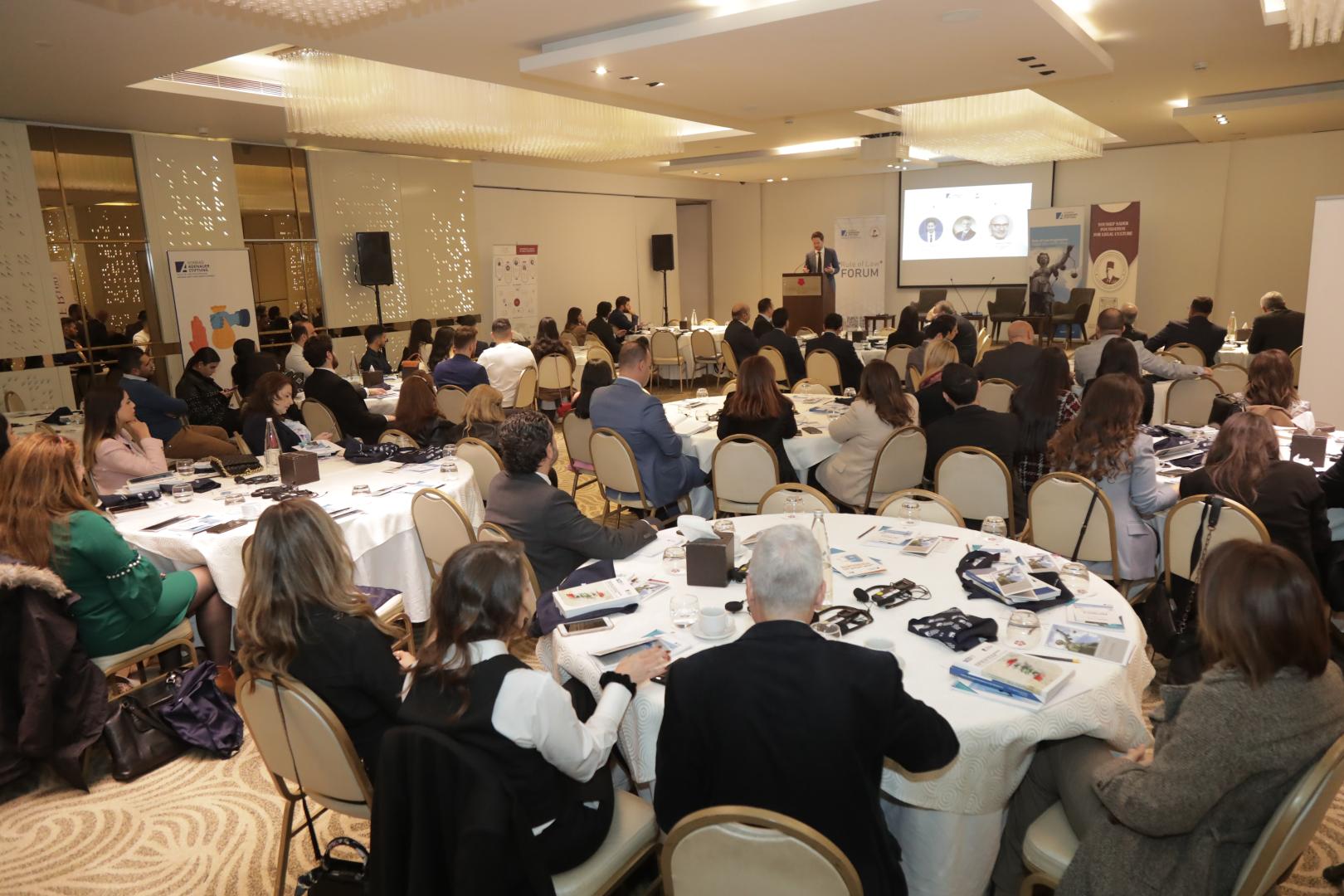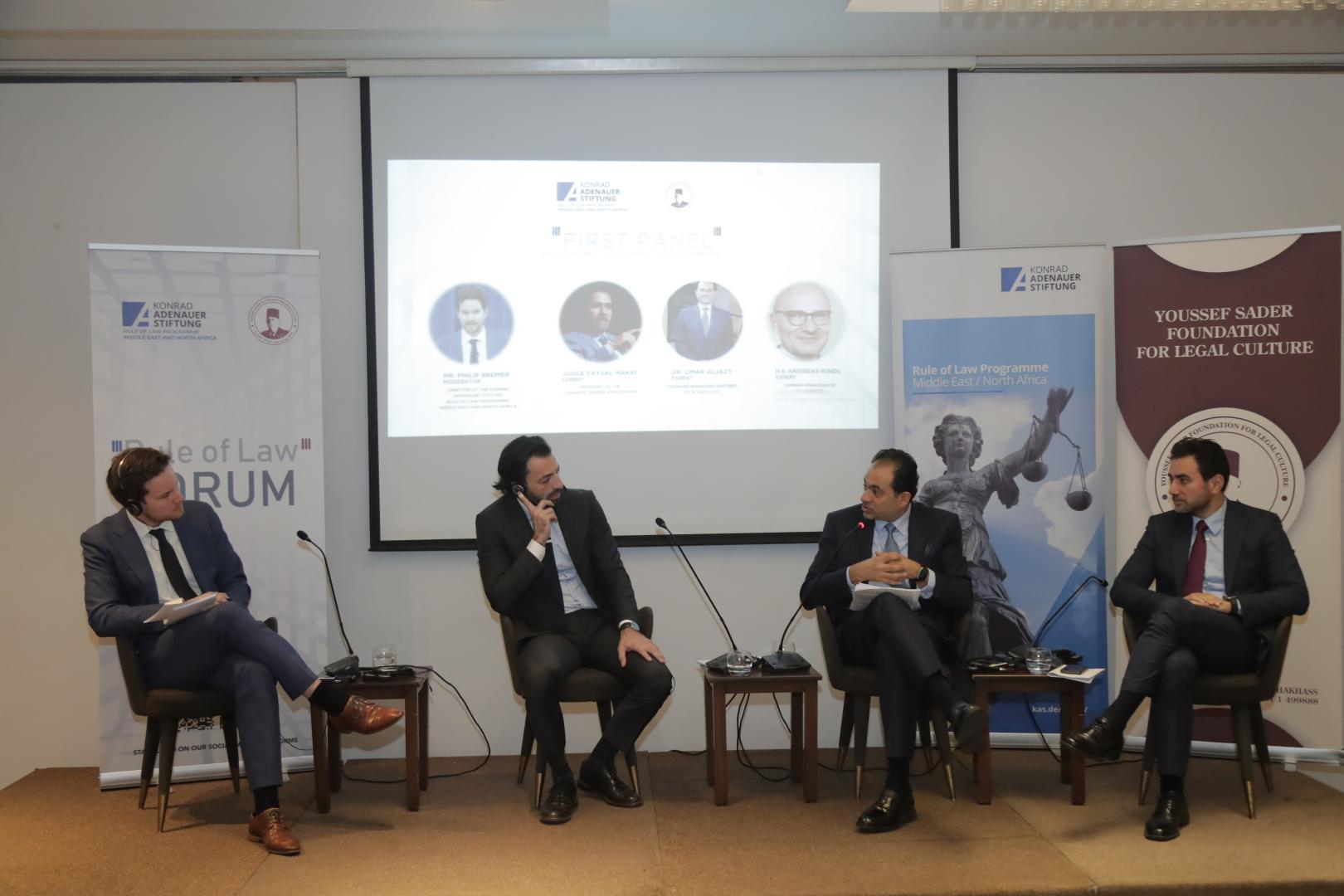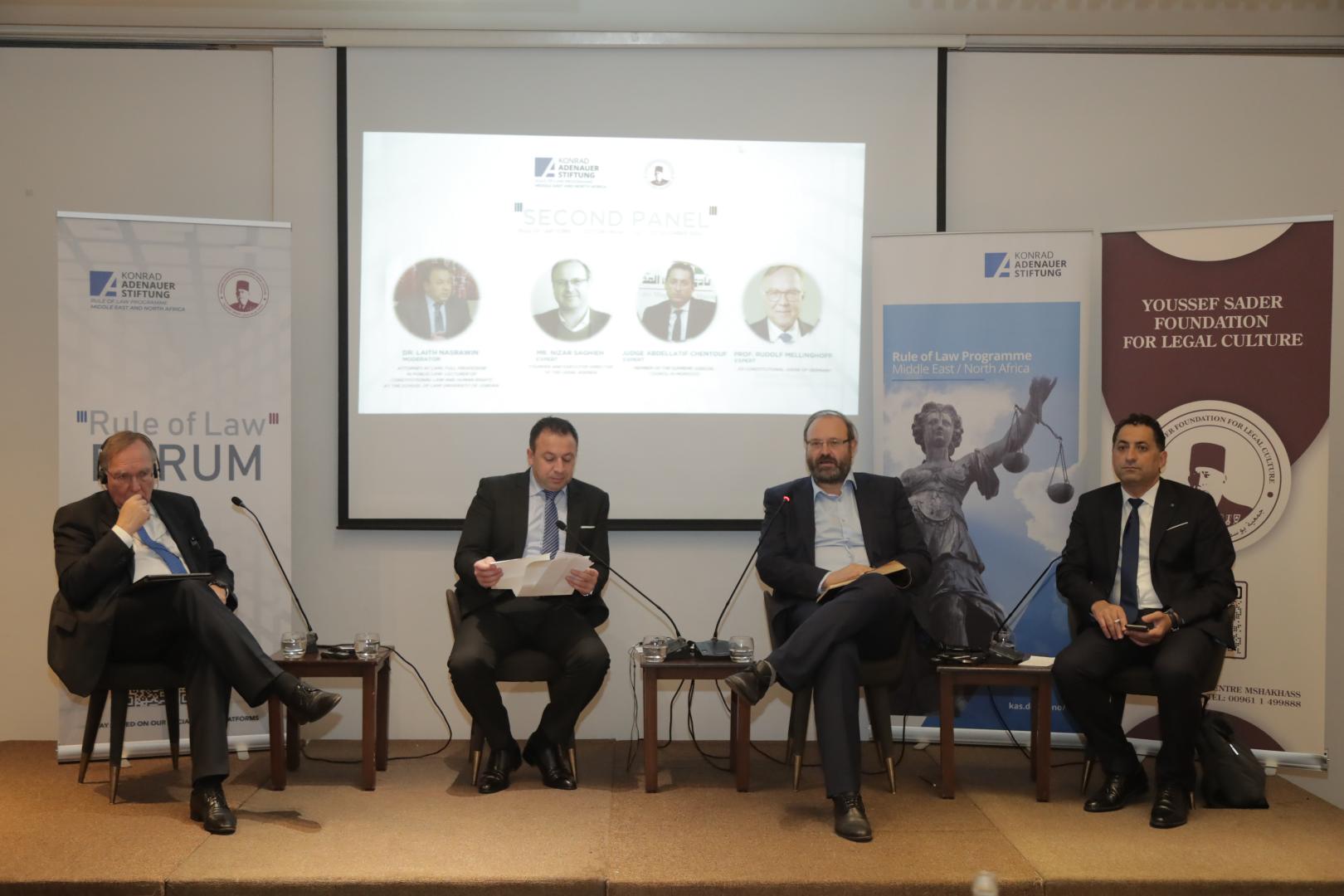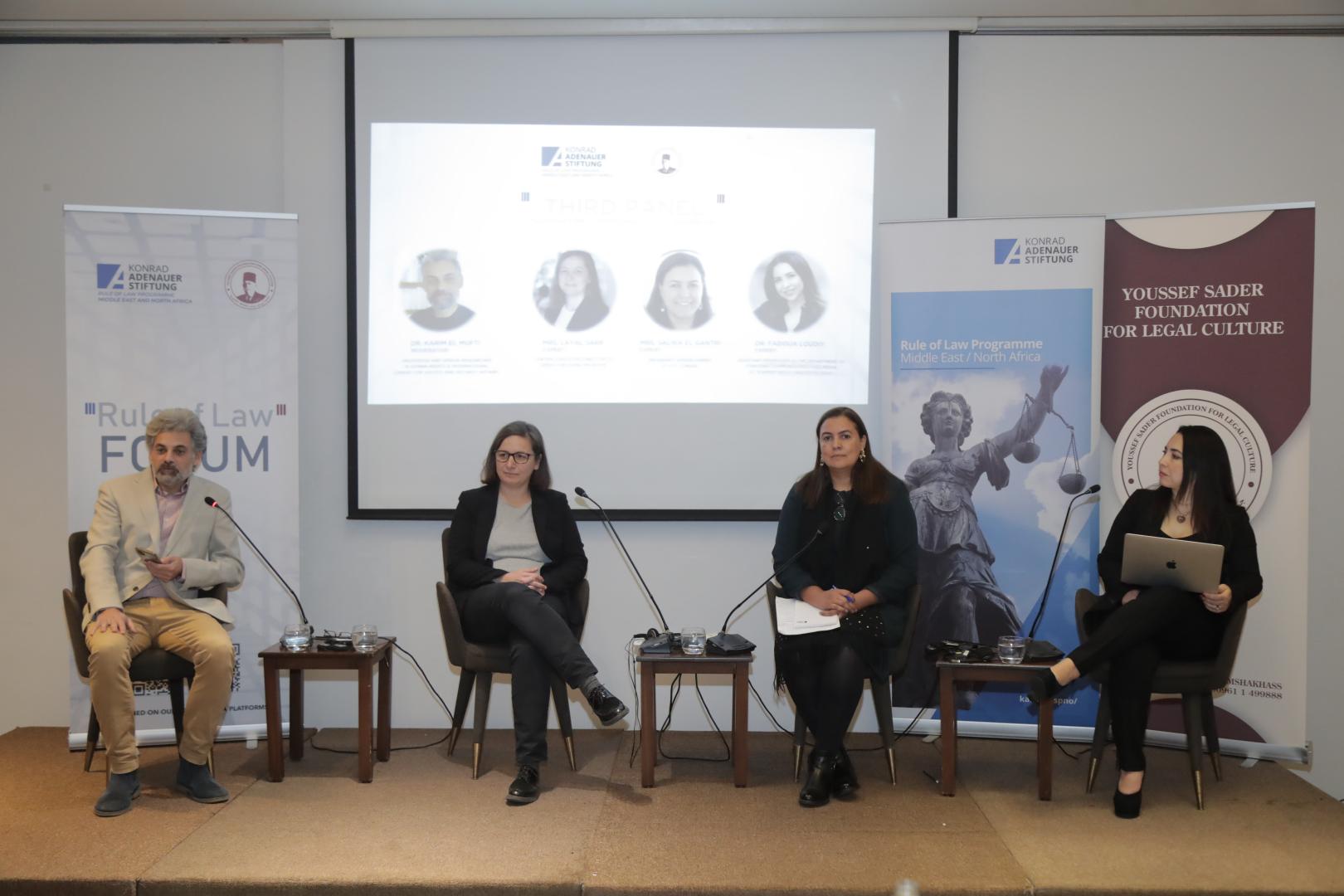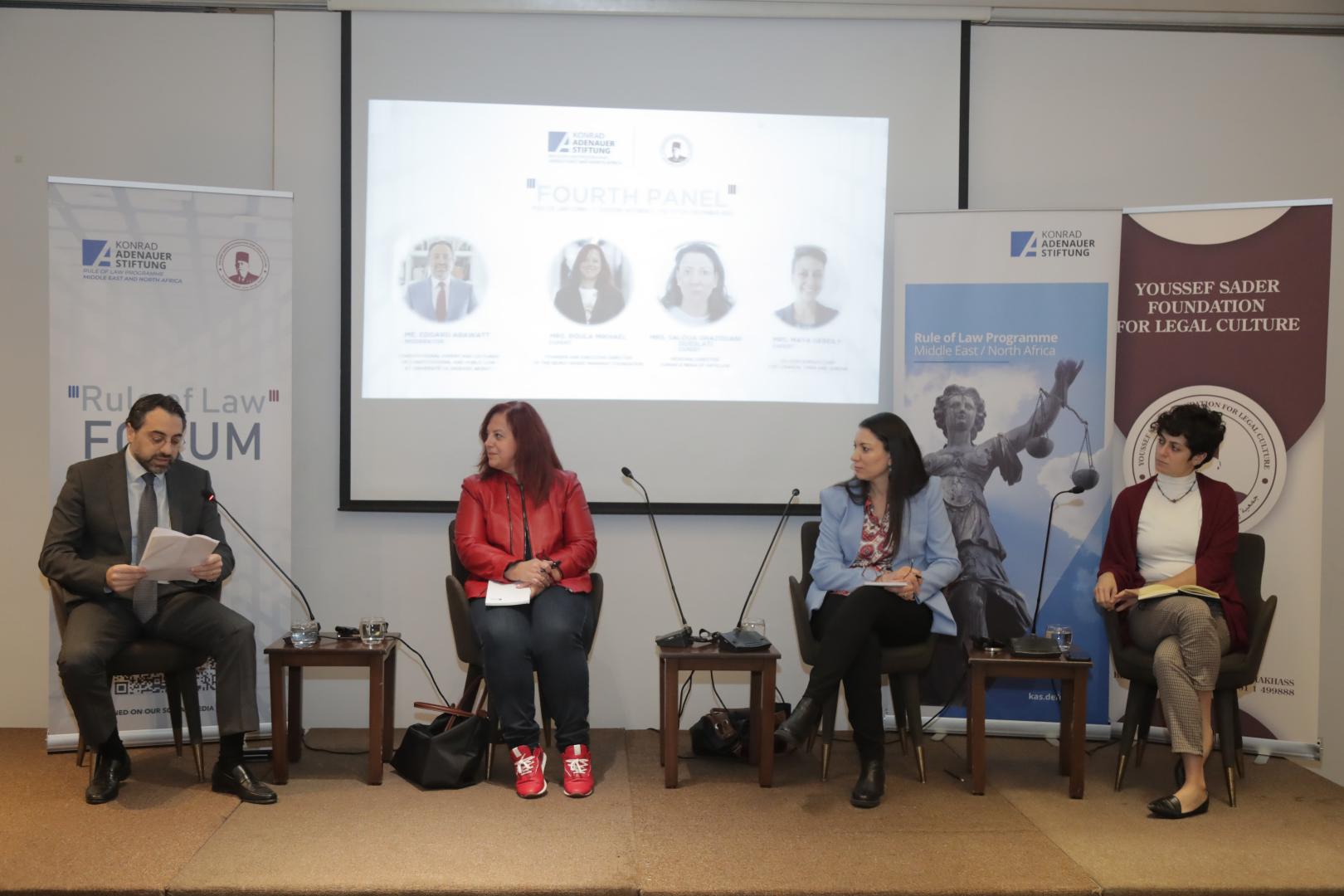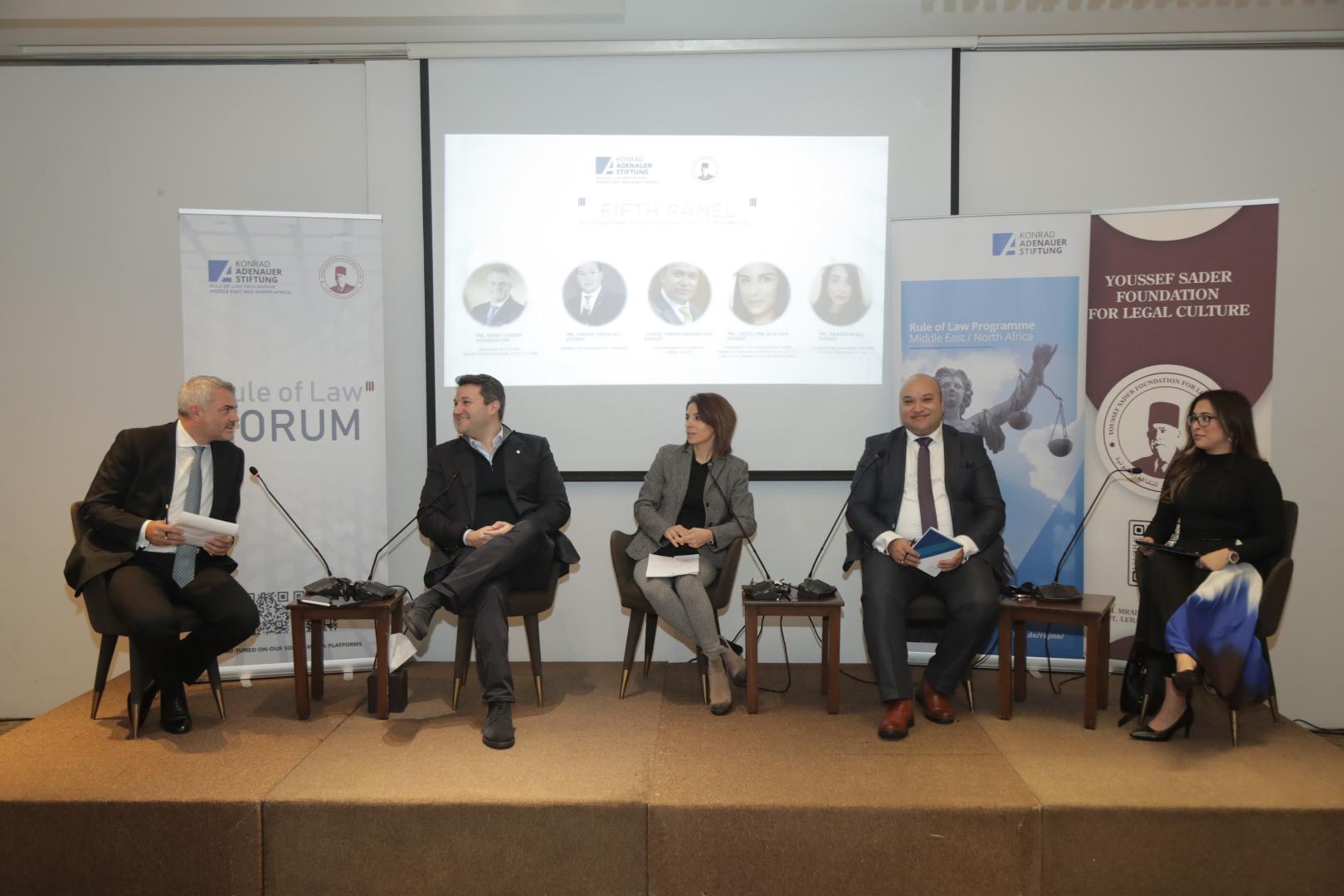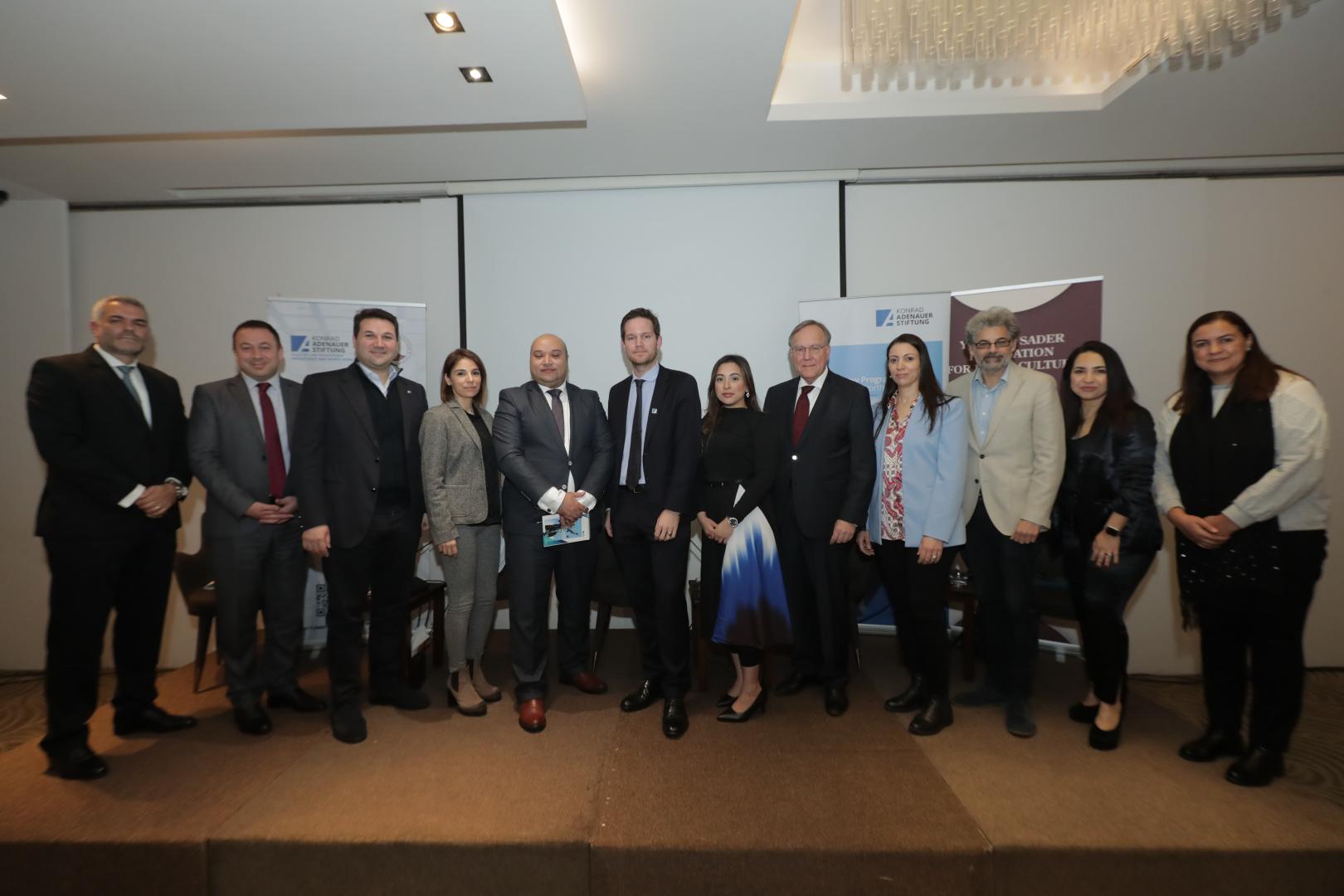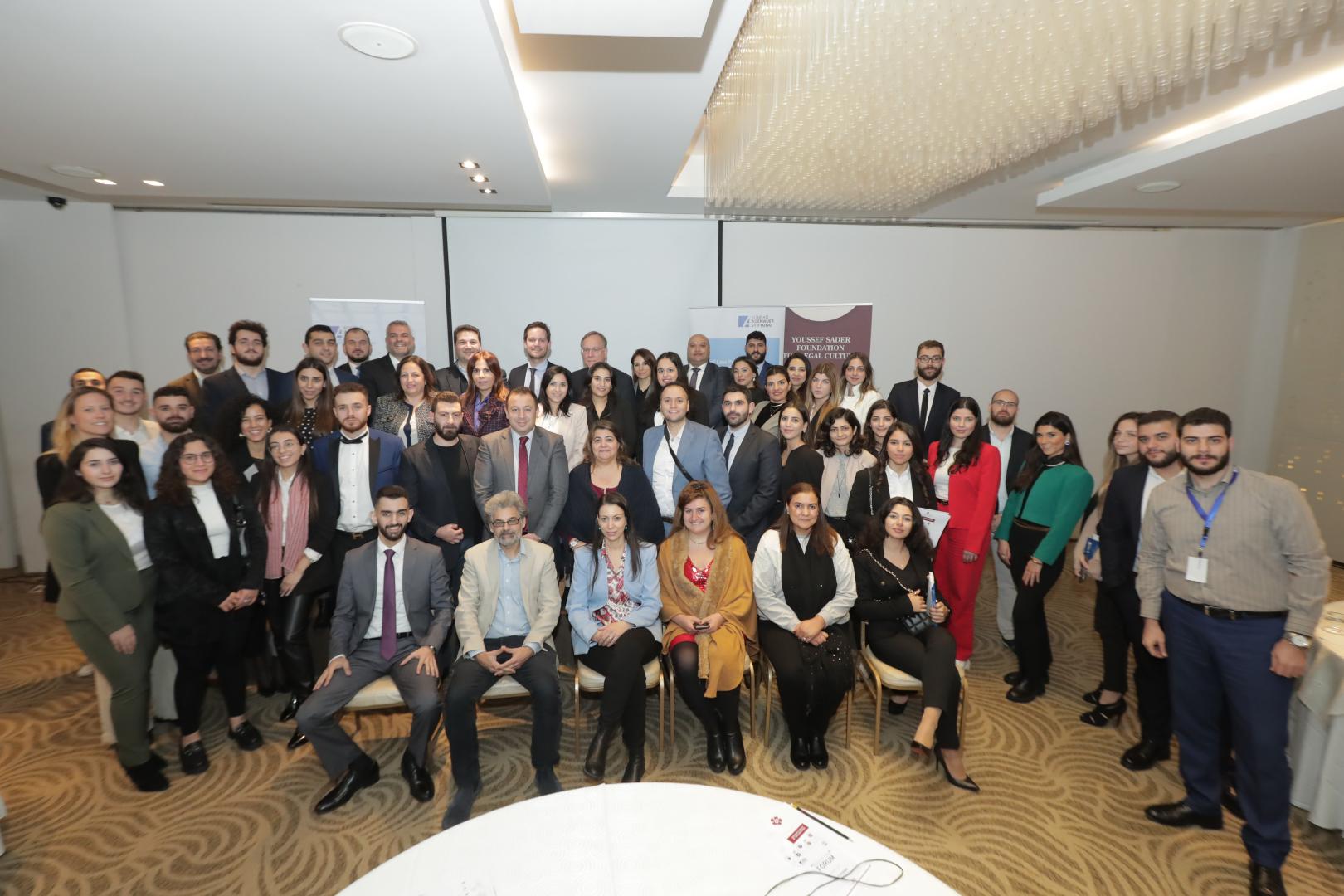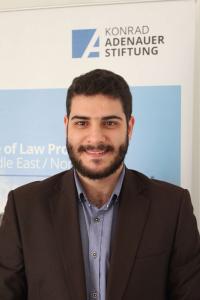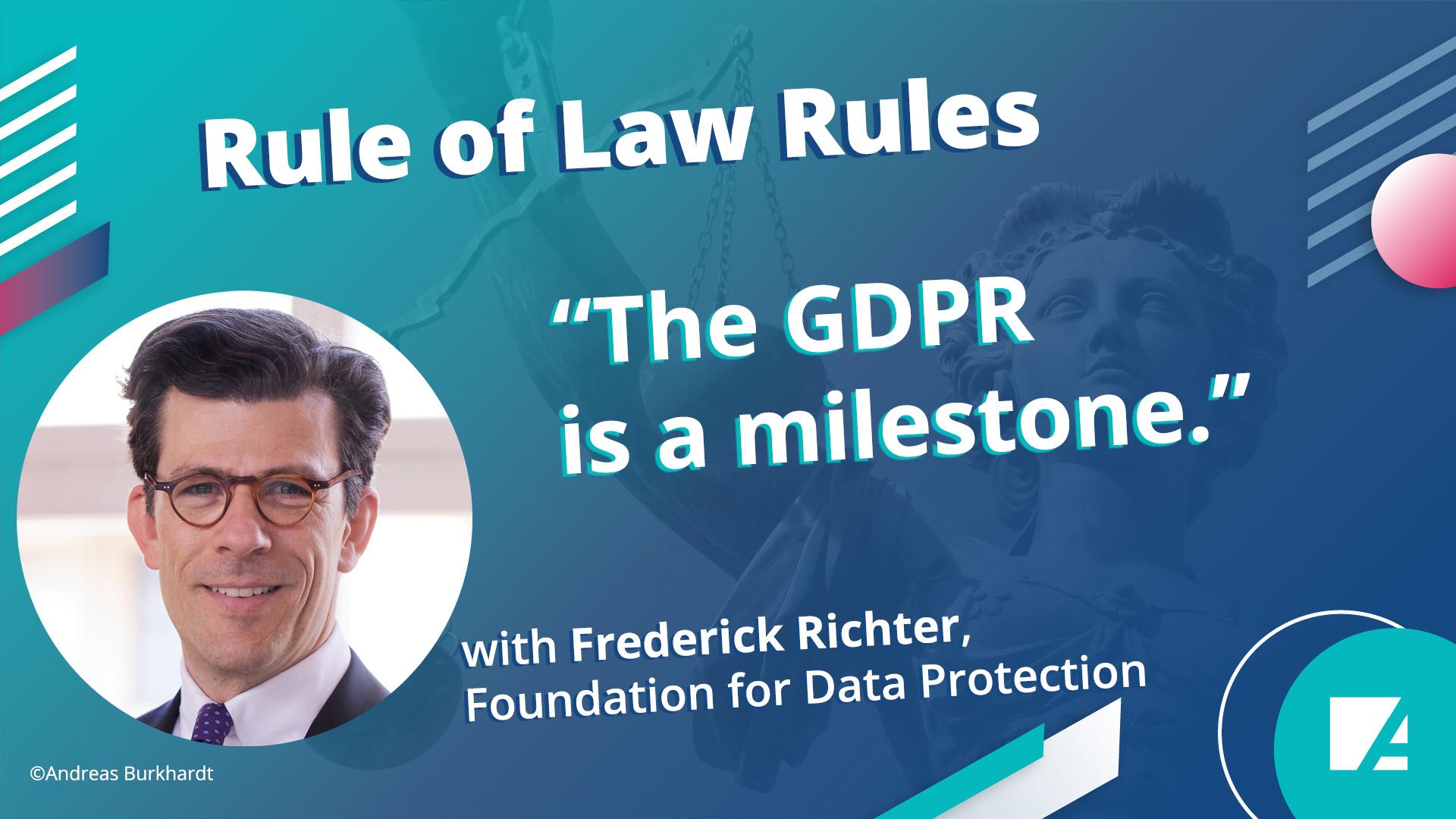This yearly flagship event aims to tackle the most prominent legal issues in the MENA region by inviting experts from all over the region and by asking pertinent and contemporary questions about the state of the rule of law and democracy in the region. This year, the FORUM included 5 panels with each panel addressing a distinct subject.
At 9:00 AM, the event started with an opening statement by each of Mr. Philipp Bremer, Director of the Konrad Adenauer Stiftung Rule of Law Programme Middle East and North Africa, Attorney Rany Sader, President of the Youssef SADER Foundation for Legal Culture and Consul Matthias Voigt, representing the German Ambassador in Lebanon, H.E. Mr. Andreas Kindl.
Mr. Philipp Bremer, opened the session, by discussing how KAS is active in the region in terms of promoting the Rule of Law and by thanking Youssef SADER Foundation for being on board in this endeavor. Mr. Bremer paid particular emphasis to the Universal Declaration of Human Rights (UDHR) that was adopted on the 10th of December 1948, by the United Nations General Assembly, ending his speech by quoting the great Charles Malik. Attorney Rany Sader, Chief Legal Innovation Officer for SADER and Chairman of Youssef SADER Foundation also brought to the forefront how the SADER heritage has been endeavoring since its inception to support the Rule of Law in the region, how it continued to do so 160 years later.
Later on the FORUM was divided into five panels over the course of two days:
The First Panel: Access to justice amidst ongoing economic and social struggles.
Panelists: Judge Faysal Makki - President of the Lebanese Judges Association), Dr. Omar AlJazy - Founding Managing Partner at Aljazy & Co., Mr. Nino Karamaoun - Chief Technical Officer of UNDP Rule of Law, Lebanon. Moderated by: Mr. Philipp Bremer.
The main objective is to have an effective, accessible and independent judiciary. The judiciary in Lebanon faces four types of challenges: structural (sectarian interference in politics and subsequent political interference in the judiciary), legal (appointment of members of the Supreme Judicial Council, immunities from prosecution etc.), material (absence of an independent budget for the judiciary) and psychological (the people have lost faith in the judiciary and its role). From a lawyer’s perspective, constant unnecessary legislative change is detrimental to how the ordinary citizen views the law. Legal aid requires a more robust system of funding. Moreover, Bar Associations should play a more important role in setting legal standards and facilitating citizens’ access to the law. Finally, a more effective judicial inspectorate body is in direct correlation with higher public trust in the judiciary as well as more effective and streamlined work within the courts.
The Second Panel: Constitutional and legal mechanisms to secure the independence of the judiciary – election of judges, financing of judiciary, possible constitutional amendments?
Panelists: Mr. Nizar Saghieh - Founder and Executive Director of the Legal Agenda, Judge Abdellatif Chentouf - Member of the Supreme Judicial council in Morocco, Prof. Rudolf Mellinghoff - Ex-Constitutional Judge of Germany / Ex-President of the Federal Fiscal Court. Moderated by: Dr. Laith Nasrawin - Attorney at law, Full Professor in Public Law, Lecturer of Constitutional Law and Human Rights at the School of Law University of Jordan.
The real problem in Lebanon is not one of separation of powers but rather of separation of the judiciary from politics. For example, the Supreme Judicial Council in Lebanon sees eight of its ten member judges appointed by the executive power which itself represents the different political parties in government. The Bangalore Principles of Judicial Conduct have been cited and have become more widely accepted and implemented by judicial systems around the world; but in order to better establish these values, there are two main stakeholders: the judiciary itself and the State.
The Third Panel: A comparative perspective on truth and memory, then and now: Tunisia, Morocco & Lebanon.
Panelists: Mrs. Layal Sakr - Lawyer, Executive Director of SEEDS for Legal Initiative, Mrs. Salwa el Gantri - Programs’ Senior Expert at ICTJ Tunisia, Dr. Fadoua Loudiy - Assistant Professor in the Department of Strategic Communication and Media at Slippery Rock University (SRU). Moderated by: Dr. Karim El Mufti - Professor and Senior Researcher in Human Rights & International Expert for Justice and Security Affairs.
Transitional justice focuses on the victims and their experiences and has five important principles: accountability, truth about what happened, reparation, institutional reform and reconciliation. Morocco was revealed to be one of the first countries in the MENA region to launch the process of transitional justice. In Lebanon, however, this transitional justice was overridden following the end of the civil war (1975-1990) when the then-warlords were elected into government and agreed on granting themselves a pardon for the crimes that were committed during the war. The parents of people who disappeared during the war had to wait until 2018 for the promulgation of a law on enforced disappearances.
The Fourth Panel: The critical role of media in implementing the rule of law and securing justice; current standing of media laws’ promulgation.
Panelists: Mrs. Roula Mikhael - Founder and Executive Director of the Beirut-based MAHARAT Foundation, Mrs. Saloua Ghazouani Oueslati - Regional Director Tunisia & MENA of Article19, Mrs. Maya Gebeily - Reuters Bureau Chief for Lebanon, Syria and Jordan. Moderated by: Attorney Edgard Abawatt - Constitutional Expert and Lecturer of Constitutional and Public Law at Université La Sagesse, Beirut.
The role of the media is important since it could easily distort the image of the judiciary. Furthermore, journalists play an essential role in providing comprehensive readings to people and protecting their right to have access to information. The rule of law can be strengthened by ensuring that journalists have access to credible sources and by encouraging fact checking and by finally raising awareness about legal matters and having more often conversations that are related to the rule of law.
The Fifth panel: Privacy, IP and access to information in a rule of law environment.
Panelists: Me. Nadim Gemayel - Member of Parliament in Lebanon, Judge Taher Abou Eleid - Vice President at Court of Appeal, Egypt, Attorney Jocelyne Alayan - Founder of JoVi Consultancy Firm, Member at Ozyegin University Faculty of Law, PIL & Comparative Law department, Attorney Faareen Ali - Founder and Managing Director of Law Simplified Ltd, UK. Moderated by: Attorney Rany Sader - President of Youssef SADER Foundation for Legal Culture.
It is important to ensure the access to information and the access to judgements for citizens. Digitalization is a fundamental way to ensure access to legal information. People struggle to understand the law especially if they cannot hire a lawyer. In addition, there should be more platforms that allow citizens to file lawsuits by themselves without hiring a lawyer, within acceptable limits. Finally, it is encouraged to include a subject about legal technology and artificial intelligence in university curriculums.
For more information about the panel topics and panelists, you can consult the e-booklet HERE.



